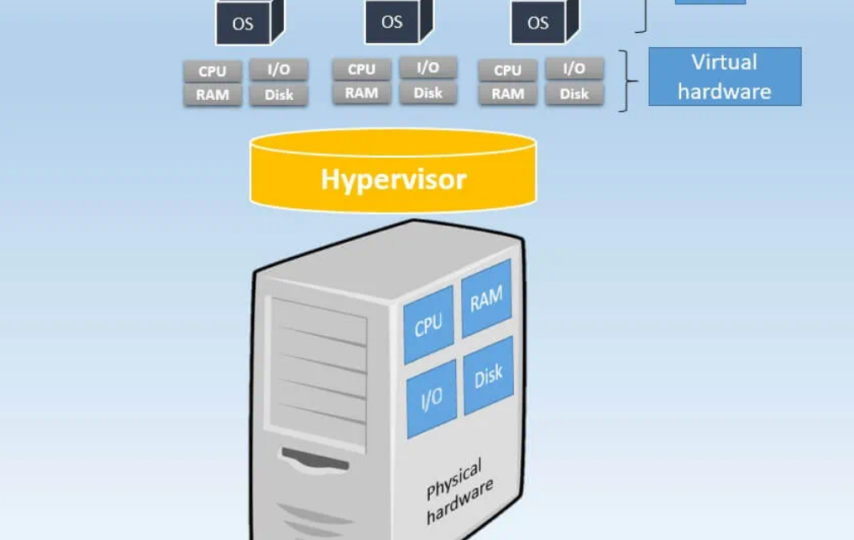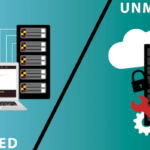In the rapidly evolving digital landscape, the choice of a virtual server is a pivotal decision that significantly impacts the performance and reliability of your online presence. With tons of options available, each presenting unique features and capabilities, it’s crucial to consider various factors that align with your specific requirements.
In this comprehensive guide, we’ll delve into the five essential aspects you should carefully evaluate when selecting a virtual server, ensuring that your choice aligns seamlessly with your digital goals and aspirations.
- User Interface (Control Panel)
A robust user interface (UI) is indispensable when it comes to managing your virtual server effectively. In addition to simplifying server configuration, application deployment, and resource monitoring, an advanced control panel can offer a plethora of features that empower users to optimize their server environment. Customization options within the UI can be highly beneficial. The ability to tailor the interface to your specific needs and preferences allows for a personalized user experience.
Look for a control panel that provides comprehensive server management capabilities. This includes features such as real-time resource usage metrics, which allow you to monitor CPU, memory, and disk usage at a glance. The ability to easily scale resources, adjust configurations, and allocate additional storage through an intuitive interface is invaluable for adapting to changing demands.
Furthermore, a well-designed UI often includes a centralized dashboard that provides a holistic view of your server’s health and performance. This can encompass information on network traffic, security alerts, and system logs. An user-friendly dashboard allows you to quickly identify and address issues, ensuring the seamless operation of your virtual server.
- Pricing
While the quality of customer support and the reliability of services are crucial considerations, understanding the pricing structure of virtual server providers is equally essential for making a well-informed decision. Pricing should not be the sole deciding factor; having a clear understanding of the cost implications ensures that you can strike the right balance between budget constraints and the services offered.
Begin your evaluation by comparing the pricing plans of different virtual server providers. Assess the resource allocation included in each plan, such as the amount of CPU, memory, storage, and bandwidth provided. Understanding the specific resource requirements of your projects or applications is crucial in selecting a plan that meets your performance needs without unnecessary excess.
Take note of additional features included in each pricing tier. A reputed web hosting reviews platform, HostingSprout.com emphasizes that you should also look into whether there are any hidden fees. Providers may offer value-added services, such as automated backups, security features, and monitoring tools, as part of their packages.
Evaluating these additional features against your requirements can help you determine the true cost-effectiveness of a particular plan. Consider the scalability of the pricing plans as well. Providers that allow you to easily upgrade or downgrade your plan based on changing requirements provide a level of flexibility that aligns with the dynamic nature of digital projects.
- Server Reliability and Scalability
Reliability and scalability form the bedrock of a successful virtual server infrastructure, and careful consideration of these aspects is crucial for a seamless and efficient digital experience. A reliable server ensures that your online presence remains consistently available, minimizing the risk of disruptions that could negatively impact your business or project. When evaluating virtual server providers prioritize those with a proven track record of high reliability.
To ascertain the reliability of a provider, look for guarantees of impressive server uptime, preferably supported by a comprehensive service level agreement (SLA). A reputable SLA not only outlines the expected uptime percentage but also often includes provisions for compensation in the event of unexpected downtime. This commitment to uptime reinforces the provider’s dedication to delivering a stable and reliable virtual server environment.
Scalability is equally essential, especially in the dynamic landscape of digital operations. Choose a provider that offers seamless scalability, allowing you to adjust your server resources easily as your requirements evolve. The ability to upgrade resources promptly is a key factor in ensuring that your virtual server can keep pace with the changing needs of your business or project. Whether its expanding storage capacity or enhancing memory, a scalable infrastructure allows for quick and efficient adjustments.
- Backup and Restoration Policy
In the fast-paced digital landscape, the specter of data loss looms as a persistent threat. Choosing a virtual server provider with a robust backup and restoration policy is not just a precautionary measure; it’s a critical component of safeguarding your digital assets. When evaluating providers, it’s imperative to delve into the specifics of their backup strategy to ensure that your data remains secure and recoverable in the face of unexpected events.
One of the key aspects to consider is the frequency of backups. Choose for a provider that implements automated and regular backup procedures. Daily or even more frequent backups reduce the risk of data loss to a minimum, ensuring that even the latest updates and changes to your digital environment are safeguarded.
Equally important is the duration of storage for backup files. The service provider offering extended retention periods for backups provide an added layer of protection. A longer storage duration not only facilitates historical data recovery but also ensures that you have the flexibility to retrieve information from different points in time. This is particularly valuable in scenarios where data corruption or unintended changes may have occurred over a extended period.
- Customer Support
In the dynamic realm of virtual server management, the quality of customer support plays a pivotal role in shaping your overall experience. When selecting a virtual server provider, prioritize those with a responsive and knowledgeable support team that demonstrates a deep understanding of the intricacies involved in managing virtualized environments.
A key factor to consider is the availability of various support channels. Look for providers that offer a range of communication options, such as live chat, email, and phone support. The availability of multiple channels ensures that you can reach out for assistance in a manner that suits your preferences and urgency. Live chat can provide real-time solutions for immediate concerns, while email and phone support may be more suitable for in-depth technical queries or complex issues.
Evaluate the provider’s commitment to timely responses. Fast response times are crucial, especially in situations where quick resolution can mitigate potential downtime and disruptions to your online activities. Companies that prioritize swift responses demonstrate a dedication to address their customers’ needs promptly and efficiently.
Conclusion
In conclusion, the selection of a virtual server demands a thorough evaluation of the user interface, reliability, scalability, backup policies, customer support, and pricing. By prioritizing these fundamental aspects, you can make a well-informed decision that aligns with your unique requirements, laying the foundation for an seamless and efficient virtual server experience.
As the digital landscape continues to evolve, a strategic and thoughtful approach to choosing your virtual server is paramount for success in the interconnected world of online presence and digital operations.








